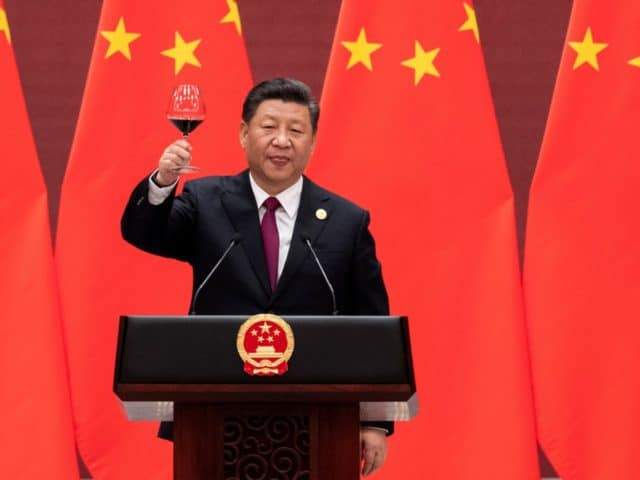Belt and Road Debts to China Skyrocket Under Coronavirus Lockdown

Countries already deeply indebted to Beijing through its Belt and Road Initiative (BRI) face increasing economic hardship caused by the Wuhan coronavirus pandemic, the South China Morning Post reported on Tuesday.
China uses the BRI to establish economically predatory infrastructure projects across the globe, expanding its sphere of influence. Chinese loans fund infrastructure projects in over 100 developing nations across Asia, Africa, Europe, and Latin America through the BRI, an initiative estimated to be worth $8 trillion.
According to the Center for Global Development (CGD), 15 out of 68 BRI partner countries face a significant risk of debt distress due to economic challenges caused by the Wuhan coronavirus pandemic.
Many countries around the world have practically shut down their economies in an effort to comply with mandatory government lockdowns meant to curb the spread of the Wuhan coronavirus, significantly disrupting global supply and demand chains. For heavily indebted countries like China’s BRI partners – already struggling before the Wuhan coronavirus pandemic – the looming economic recession may spell disaster.
In Africa, Niger and Angola will likely encounter difficulties. Ecuador, run by pro-China socialists for much of the decade, and Venezuela, rapidly approaching failed state status, are among the more at-risk Latin American countries. The study noted that smaller economies in Asia such as Laos, Cambodia, and the Kyrgyz Republic may also fall deeper into debt.
Experts estimate that developing countries’ “hidden debts” to China totaled $380 billion before the emergence of the Wuhan coronavirus pandemic.
BRI loans often require debtor nations to use specific Chinese contractors and materials for their infrastructure projects, in a practice known as circular lending. These Chinese contractors include Huawei, ZTE, China Harbor Engineering, and China Road and Bridge Corporation (CRBC). China demands massive amounts of collateral for loans, crafting a “debt trap” for impoverished nations.
In 2017, Sri Lanka handed over a port to China in an effort to pay off its BRI debts. Having defaulted on BRI loans to Chinese firms, the nation formally surrendered the strategic port of Hambantota to China on a 99-year lease, in a deal that threatens Sri Lanka’s sovereignty.
The warning for BRI-member economies comes as Chinese state media recently criticized the U.S. and Europe for wanting to restart their economies amid the ongoing coronavirus pandemic.
“An economic shutdown can be more detrimental to the ruling parties of the U.S. and European countries than the pandemic,” an editorial in the People’s Daily, an official Chinese Communist Party (CCP) newspaper, claimed on Tuesday.
“For the U.S., it is a capitalist country after all, where maintaining economic activities is given higher priority than humanitarianism and is the basic way to keep society running,” the author added.
Photo: Nicolas Asfouri - Pool/Getty











